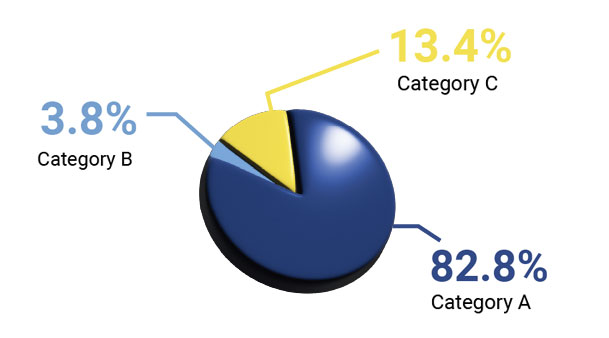In recent years, Cambodia has significantly increased its international trade volume. This growth, alongside a steep increase in technological development and advancements in the fourth industrial revolution (Industry 4.0), represents key components in the country’s economic development, integration, and globalization. On 13 October 2004, the Kingdom of Cambodia became a member of the World Trade Organization (WTO) and has, ever since, implemented its economic integration policy.
Cambodia ratified the Protocol regarding the amendment of the Marrakesh Agreement on the establishment of the WTO to include the WTO Trade Facilitation Agreement (WTO TFA) into Annex 1A of the Marrakesh Agreement. In addition, Cambodia submitted the ratification document to the WTO on 16 December 2015 and on 12 February 2016 to promote Cambodia’s international trade competitiveness and improve trade facilitation. Cambodia joined the WTO as the 69th member in the least developed countries ranking and occupies rank eight of the WTO member countries that have ratified the WTO TFA.
According to Article 23.2 of the WTO TFA, every WTO member must establish a National Committee on Trade Facilitation (NCTF) or designate an existing mechanism for internal cooperation with relevant ministries, institutions, and the private sector to ensure the effective implementation of the TFA provisions. In addition, members are recommended to strengthen the cooperation with development partners to facilitate the implementation.
Complying with WTO regulations (Sub-Decree No.18 dated 26 February 2020), Cambodia successfully established the NCTF and appointed the General Department of Customs and Excise of Cambodia (GDCE) as the Secretariat.
With the aim of establishing an umbrella strategy to guide the implementation of trade agreements and promote the cooperation between import-export-related OGAs, the private sector, and development partners, a trade facilitation roadmap for 2022-2025 has been developed. Designed as the guiding vehicle for relevant ministries and institutions, particularly NCTF members and its Secretariat, the roadmap aims to help achieve strategic goals, including
As a member of the WTO TFA, Cambodia is recognized as a least developed country. Therefore, it enjoys the highest level of support on technical assistance and capacity-building initiatives from development organizations. Cambodia shall fulfill its obligation to notify the WTO on the classification of each category measure in compliance with the WTO TFA. To date, Cambodia has officially notified the WTO Committee seven times.

The latest notification, dating 9 February 2021, addresses category classifications changes,particularly within Article 7.9 on perishable goods. It reflects that the category’s classification has been amended from C to B. Cambodia’s current level of conformity within each category is held as below:


Join us ! The best way to keep in touch and be informed.